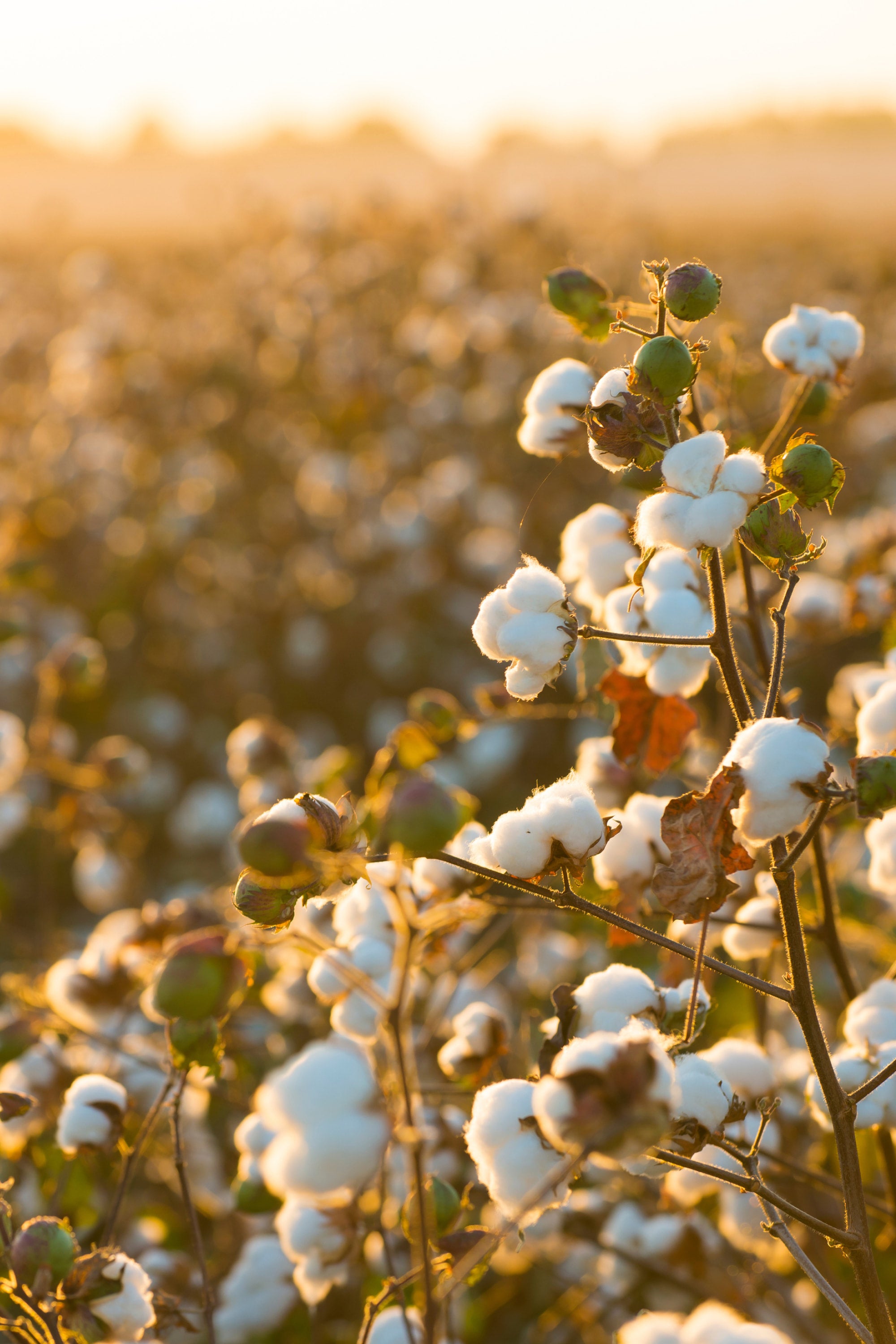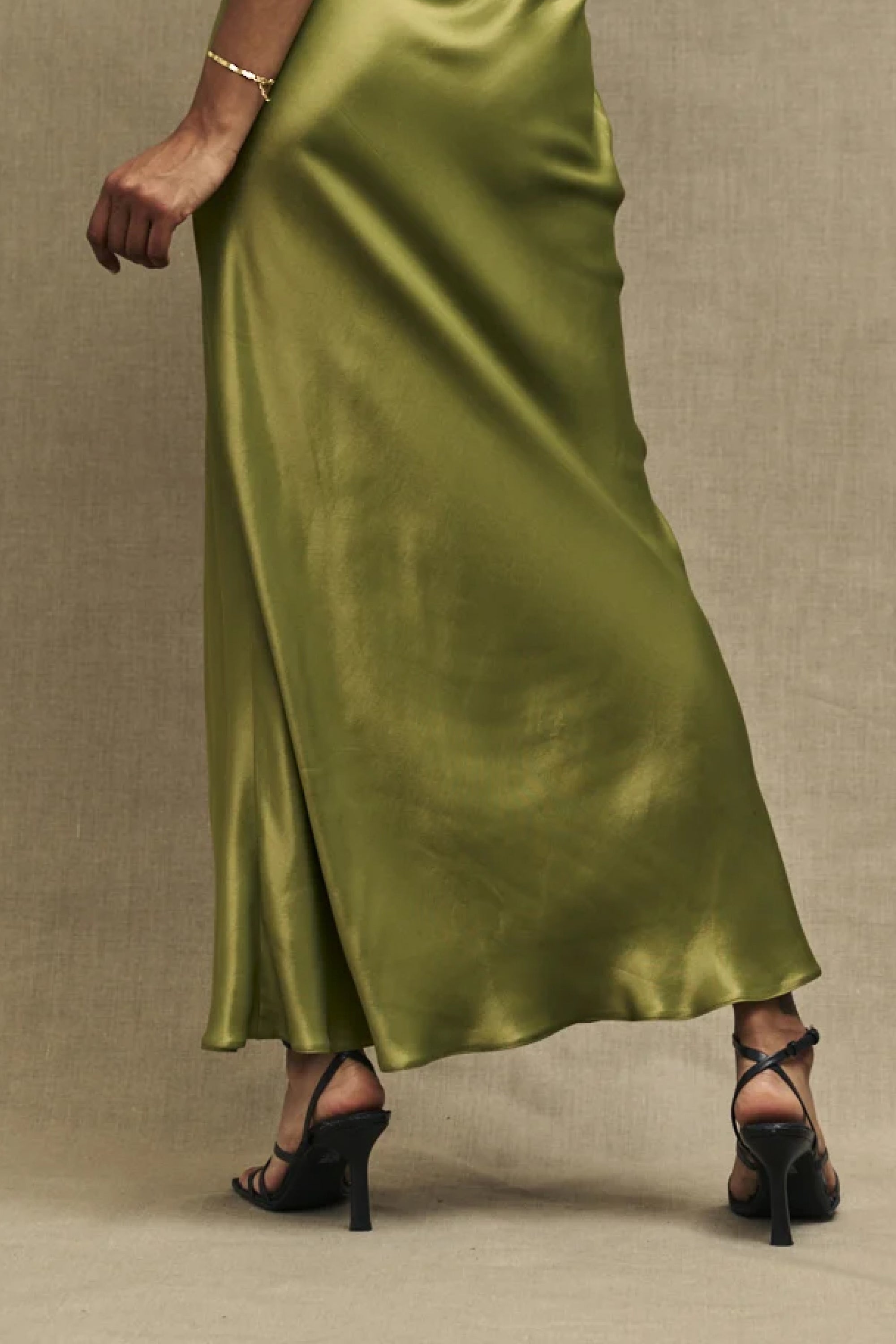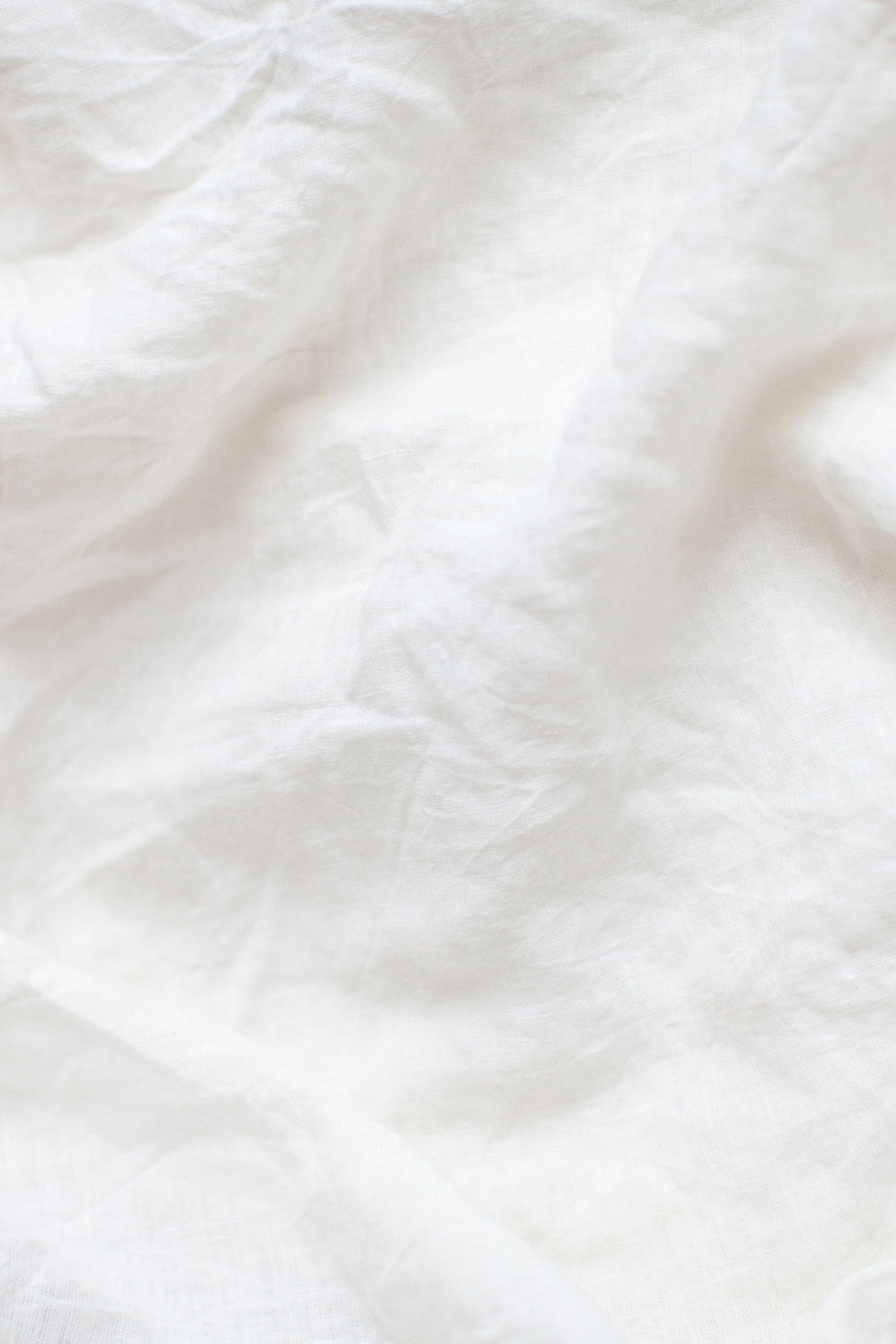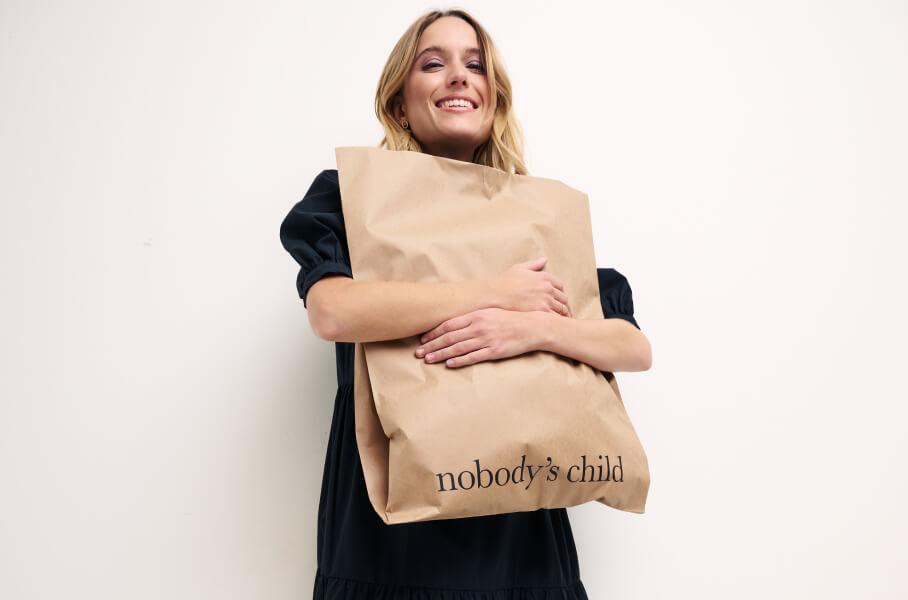
Product
We are on a mission to bring beautiful clothing to everyone, everywhere. We take pride in our materials mix, but also strive to offer increased access to services and systems that keep our products loved and in use for as long as possible.
Our fabrics
We are proud to favour materials from reduced-impact sources, including organic farming, recycled feedstock, and responsibly managed farms and forestry. We are continually assessing our materials mix to identify areas to improve, and will investigate innovative additions through R&D. Read more about our favourite materials below.
Cotton
Cotton is one of fashion’s most ubiquitous fibres, accounting for a large proportion of Earth’s cultivated fibres. Where we can, we source organic cotton avoids agricultural and processing chemicals such as pesticides and fertilisers.

TENCEL™ Lyocell
Lyocell fibres belong to the wood based fibre category. These fibres are made by dissolving wood-based matter into a pulp, for extrusion into fibres. We use TENCEL™ Lyocell fibres because they are derived from controlled or certified wood sources and produced in a closed loop process which recovers 99.8% of the solvent – resulting in close-to-zero wastage.
TENCEL™ is a trademark of Lenzing AG

Synthetics
Where we use synthetic materials, such as nylon, polyester, and acrylic, we seek out certified recycled fibres to reduce dependence on virgin fossil fuel-based materials. Currently, we favour fibres derived from pre and post-consumer synthetic materials, such as carpets, bottles, and fishing nets, but we understand recycled synthetics still have an impact. Therefore, we constantly monitor our use and pay close attention to any reduced-impact innovations that emerge.

Viscose
Viscose is another fibre type of our commonly used fabrics and part of the wood based fibre group. These fibres are made by extruding cellulose pulp into fibres. We seek to source wood based fibres, including viscose, from controlled or certified wood sources including LENZING™ ECOVERO™ viscose and Livaeco™ by Birla Cellulose
LENZING™ and ECOVERO™ are trademarks of Lenzing AG

Linen
Linen is one of the world’s oldest fibres. Derived from the flax plant, it’s a crop known for its fast growth, and small chemical and water footprint, compared to other natural fibre groups. As a fabric, linen is breathable, durable and has unique thermo-regulating properties meaning its wearable in both summer and winter.

Wool
As a natural animal-based fibre, wool's impact typically relates to animal welfare, traceability, and agricultural methods. This is why we source wool that has been third-party verified to uphold animal welfare and land management principles. Our animal welfare policy is included in our Supplier Handbook and is in place to ensure suppliers uphold the Five Freedoms of Animal Welfare while procuring our animal-based fibres.

Materials we avoid
Along with continually reviewing our materials mix for collections, there are materials that we’ll never use.
These include:
Animal fur including Angora
Exotic skins or hides – we’ll never source any species listed on the CITES (Convention on International Trade in Endangered Species of Wild Fauna and Flora) and IUCN (International Union for Conservation Red) lists of endangered species
PVC (polyvinyl chloride)
We also restrict the use of certain chemicals from entering our supply chain. This list applies to our fabrics as well as to our trims and components.

Supply Chain Traceability
We understand our responsibility to map our supply chain as fully as we can in order to have visibility on the systems that make our products. We currently disclose our tier 1 supplier partners on Supply Hub, an
open-source tool that maps garment facilities globally for most clothing brands. We are exploring traceability beyond tier one suppliers and are developing traceability targets.
An exploratory part of our traceability journey, we are building on the success of our pilot Digital Product Passport (DPP) initiative. Through our DPP, customers can scan the QR codes on our care labels, to learn more about the product journey, its materials, trims, responsible care instructions and circularity focused services in place for the end of its life.
Circularity
A circular economy is based on the principles of designing out waste and pollution, keeping products and materials in use and out of waste streams. We are working with our design team on integrating circular design principles into our designs and continue to work with our purpose-led partnerships to elevate our resale, rental, and repair services.
We’re members of Textiles 2030, a new ground-breaking, expert-led initiative, harnessing the knowledge and expertise of UK leaders to accelerate the whole fashion and textiles industry towards circularity and system change in the UK. Textiles 2030 targets include reducing greenhouse gas emissions, water and the amount of virgin materials used.
We’re pleased to have been accepted to be part of the Ellen MacArthur Foundation community. The Ellen MacArthur Foundation is a charity committed to creating a circular economy, which is designed to eliminate waste and pollution, circulate products and materials (at their highest value), and regenerate nature.
Packaging
Our paper-based materials including swing tags and paper mailers are derived from forestry certified to uphold strict land management standards. To ensure your delivery arrives in top notch condition, you’ll still find a certified recycled and recyclable plastic inner bag inside. However, we understand even recycled plastic still has an impact will continue to review plastic-free innovations on the market as they’re developed.
We’ve also explored paper, oxo-degradable and biodegradable plastic however, such materials need to be properly composted and meet very specific conditions in order to break down into natural matter. In some cases, this type of packaging can contaminate waste streams. When thrown in the bin, they’re likely to end up in a landfill without the proper temperature and oxygen needed to decompose.














